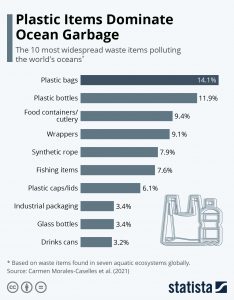The Anthropocene: We’re In It, Like It or Not
Apr 8th, 2024 | By admin | Category: Featured, Planetary Well-BeingBy Suzanne York.
Are we living in a new climate epoch due to how human activities have affected the planet itself?
A number of scientists think so, and have been saying for more than a decade, that Earth is now in the Anthropocene epoch. But it is a contentious issue, and last month, the highest governing body in geology decided that no, designating a new geologic epoch called the Anthropocene shouldn’t happen yet.
Though an epoch can be several million years in length, some scientists argued that it didn’t make sense to recognize our current interval as its own epoch, since it’s incredibly brief in geological time (we are in the Holocene epoch, which began approximately 12,000 years ago).
One main point of contention was the start date. Many called for the beginning of the Anthropocene to be 1945, when the United States dropped the atomic bomb.
Paul Crutzen, the atmospheric chemist who originally coined the term “Anthropocene,” said it started in the late 18th century thanks to the greenhouse gas emissions that took off with the Industrial Revolution. Others go back even further.
Human beings have been altering the world for at least 10,000 years. Certainly human impacts have accelerated since the Industrial Revolution. The increasing changes and disruptions in the climate show this to be true. Climate change is altering the way fauna and flora behave, and is causing havoc on delicate ecosystems. Warming temperatures are messing up bird and animal migrations, flowering of plants, changing hibernation patterns and causing them to struggle to adapt in a myriad of other ways.
Still need convincing that calling it the Anthropocene is warranted? NPR recently ran a series of photos taken by The Anthropocene Project for which no words are needed. Check out the photos, mostly taken by Edward Burtynsky, here.
A World of Waste
If that’s not enough to convince people, the constant stream of reports that point to how humankind is having an impact, to the detriment of all species, might change some minds.
Take, for instance, the United Nations Environment Programme’s flagship Global Resources Outlook 2024report, which found – unsurprisingly – that the world is in the midst of a triple planetary crisis of climate change, biodiversity loss and pollution and waste. Consumption of the planet’s natural resources by humanity is set to see a 60% increase by 2060.
The main drivers, according to Global Resource Outlook 2024, are urbanization, industrialization and runaway population growth, which are increasing resource intensity for sectors like food, mobility, housing and energy.
Per UN estimates, the global population will expand from around 8 billion currently to 9.7 billion by 2050, reaching nearly 10.4 billion by 2080. This would put an unprecedented strain on the Earth’s natural resources.
And what happens with many of the things people consume? Our waste is dumped in landfills. A recent study in the journal Science determined that decades of buried trash in landfills is releasing methane at higher rates than previously estimated – nearly three times the rate reported to federal regulators.
Daniel H. Cusworth, lead author of the study and a climate scientist at Carbon Mapper and the University of Arizona, told the New York Times, “You can sometimes get decades of trash that’s sitting under the landfill…We call it a garbage lasagna.”
It’s More Than Semantics
In the end, it really doesn’t matter what we call our epoch or when the Anthropocene might have started. Our human footprint is undeniable. Human-driven changes to the planet are impacting all living creatures on Earth.
“We are in the Anthropocene, irrespective of a line on the time scale,” said Francine McCarthy, an earth scientist at Canada’s Brock University who participated in the Anthropocene Working Group. “And behaving accordingly is our only path forward.”
Humans have been reshaping the planet for thousands of years. It is past time to rethink the way we interact with the world in which we live. It is vital that we put efforts into curbing the impacts humans have on the planet so that the Anthropocene – or ‘not yet Anthropocene’ – does not shift the Earth into an environmental state that is hostile to life, something that could happen if changes are not made. This can only be done by respecting nature and protecting it, and realizing that we are part of a web of life that should be nourished, not exploited.
Suzanne York is Director of Transition Earth.

![[Photo by Sylwia Bartyzel on Unsplash]](http://populationgrowth.org/wp-content/uploads/2024/04/Photo-by-Sylwia-Bartyzel-on-Unsplash-199x300.jpg)

![[Photo by Chris LeBoutillier on Unsplash]](http://populationgrowth.org/wp-content/uploads/2024/04/Photo-by-Chris-LeBoutillier-on-Unsplash-206x300.jpg)